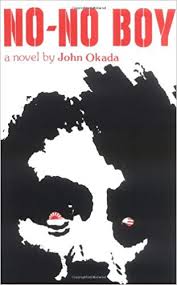What do you think?
Rate this book


260 pages, Paperback
First published January 1, 1956


I could have gone into the army and shot & killed, and shot & killed some more but when one is born in America & learning to love it more & more every day without thinking it, it is not an easy thing to discover suddenly that being American is a terribly incomplete thing if one's face is not white & one's parents are Japanese of the country which attacked America. It is like being pulled asunder by a whirling tornado.In American society, at least during this period, an Irish-American named O'Hara is fully-accepted, while a Japanese-American named Ohara is rendered a 2nd-class citizen even if he served during WWII. Thus, an apostrophe can make an incredible difference!

“Yet, America is the only home that he knows and there is some comfort in the thought that his own mistake was no more detestable than the mistake of the nation which doubted him in the moment of crisis.� - John Okada, letter to publisher, 1956Historians apply the term internment to the dark, shameful World War II-era policy when Americans rounded up other Americans of Japanese descent on the west coast shortly after the attack on Pearl Harbor. Those who lived through it called it evacuation. An organized mob that wanted to keep an eye on them, regardless of how it frayed the nation’s fabric, and got legal justification to carry out their smug bigotry. Victims, despite the prices they paid, saw it as a temporary insanity. The quiet pact they made, knowingly or not, kept this history relatively quiet, with few exceptions, long after the civil rights movement swept through the nation. One of the victims of this self-imposed silence was John Okada, whose only published novel, in 1957, was salvaged from the forgotten heap of history years after his untimely death at the young age of 47 in 1971.
Locked up in prison camps for no fuckin� reason
